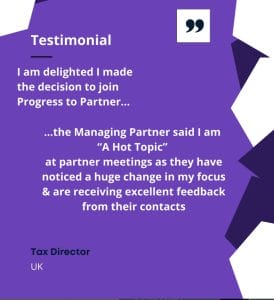 If you’re an auditor and want to move up the ladder quickly; if you want to get from supervisor to manager this year here is how to excel so you get noticed for promotion. Sometimes the supervisor role outside of audit has a different title such as ‘senior associate’ (PwC Corporate Finance), or ‘senior consultant’ (EY IT Audit).
If you’re an auditor and want to move up the ladder quickly; if you want to get from supervisor to manager this year here is how to excel so you get noticed for promotion. Sometimes the supervisor role outside of audit has a different title such as ‘senior associate’ (PwC Corporate Finance), or ‘senior consultant’ (EY IT Audit).
How to go from supervisor to manager
Before you can go from supervisor to manager you need to know what it means to be a manager. All too often people have a fixed idea about what they think it means to be a manager in their firm without actually know exactly what it means. If you are in the position where you want to go from supervisor to manager then find out officially and unofficially what it means to be a manager.
The official definition of what it means to be a manager will be laid out in your firm’s competency framework (if they have one). If your firm doesn’t have a competency framework, job descriptions for manager roles will give you an idea of what it means to be a manager in your firm. However, and this is the beauty of partnerships, every rule and process in the firm is normally allowed to be broken for the right person or client. Therefore, spend some time talking with people who have newly made manager. Find out from them:
- What did they do to go from supervisor to manager?
- What do they wish they had known before they were promoted to manager?
- What do they see as the main differences between supervisor and manager?
- What skills do they now use as a manager which they didn’t need so much as a supervisor?
Of course, those lucky people who get earmarked as ‘partnership potential’ will find that a partner will often be accelerating their career behind the scenes.
Take a step forward to be in control of your own career progression in your firm. Sign up to my weekly tips here and you’ll find out what you need to be working on in your career development (and how to make the time for your career development) to progress your career in your firm.
The typical differences between being a supervisor and manager
 Very often the audit supervisor role in a firm is seen as a stepping stone to manager. I.e. if they think you have got what it takes to be a manager they will promote you to supervisor to help you develop to manager. A supervisor will be asked to lead the team of audits on the ground as well as plan/prepare/project manage the audit. Whereas the manager will be in the office and the main contact for the client.
Very often the audit supervisor role in a firm is seen as a stepping stone to manager. I.e. if they think you have got what it takes to be a manager they will promote you to supervisor to help you develop to manager. A supervisor will be asked to lead the team of audits on the ground as well as plan/prepare/project manage the audit. Whereas the manager will be in the office and the main contact for the client.
The manager will handle the majority of the client queries about billing, how the audit will run. As the day-to-day contact for clients the manager will be expected to be involved in business development activities and client relationship management. Whereas the supervisor is very much focused on getting the team of auditors on the ground to complete the audit. Someone who has been tagged as ‘having’ partnership potential, may find that they are given much more exposure to manager type responsibilities as a supervisor.
How to quickly excel
In terms of how you can really excel, the best thing to do is get some feedback from others to understand the following:
1) What are your strengths, which you should aim to exploit to move your career forward?
2) What are your weaknesses? Which ones do you need to fix if you are going to move your career forward? Which ones can you create strategies building on your strengths to minimise?
3) What 3 things do you need to focus on to make manager in the next 12 months?
Armed with this feedback you should be able to put a plan together to progress your career and start to excel. However, my suggestion is to always get informal feedback at the end of every audit you do.
Ask the manager running the audit, what more you could have done to make their life easier on the audit? Ask the team you have around you on the audit, what more you could have done to be a better team leader/team member? If you haven’t already, get yourself a mentor within the firm and ask to speak to them quarterly about your career and how to progress it.
I created the Progress to Partner Academy to make this as easy as possible. There are guides, self-study courses, useful videos, workbooks waiting for you – everything you need to know about how to build your partner-ready skills in one place. One of the 14 courses in Progress to Partner is called “How to Truly Commit to Moving your Career Forward”. It’s a game-changer and will get you focussed and help you to create the time and space to work a little on your career plan… Every.Single.Week.









